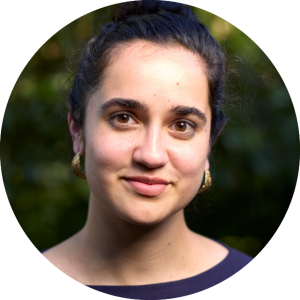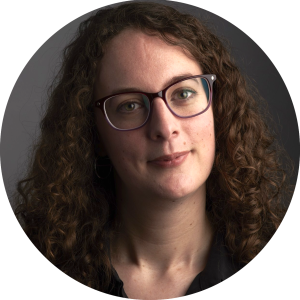2023-2024
Creepy Privacy
Dr. Kiran Bhardwaj • March 12, 2025 at 3:30 p.m. Eastern
Public and popular views of digital privacy concerns often trade on a particular intuition about creepiness: that we can (and should!) use our feelings of whether something is creepy as a proxy for whether or not something is a breach of privacy. Yet this emphasis on creepiness is a problem: not only do feelings of creepiness sometimes misfire, it has also meant that technologists have focused on altering user perceptions of ‘creepiness’ rather than interrogating whether the technology preserves privacy. Some scholars (such as Richards 2022) have concluded, thus, that ‘creepiness’ is a mere distraction. I argue that’s not the case, either. In this talk, we’ll (1) consider what creepiness is and what it does for us, and (2) look at how ‘creepiness’ can rightly serve as a guide when thinking about digital privacy.
Dr. Bhardwaj has taught philosophy at Phillips Academy, Andover since 2017, and is the Department Chair of the Philosophy and Religious Studies department. She teaches courses including Proof and Persuasion, Views of Human Nature, Feminist Philosophies, Ethics of Technology, and The Ethics of Blame and Forgiveness. She has been awarded a Tang Fellowship for 2019 to the present, in which she and her collaborators have developed an ethics pedagogy for computer science and other technical classes and run ongoing programming. Her philosophical interests are in ethics (especially moral psychology), practical ethics, Kant, feminism, and logic. Her most recent publications are “Giving Up on Someone” in The Journal of Ethics and Social Philosophy and “The Kingdom of Ends as Ideal” in Human Dignity and the Kingdom of Ends, edited by Jan-Willem van der Rijt and Adam Cureton (Routledge 2021). She completed her Ph.D. in Philosophy as a Royster Fellow at the University of North Carolina at Chapel Hill.
With Power Comes Responsibility: The Politics of Structural InJustice
Dr. Maeve McKeown • January 29, 2025 at 11:00 a.m. Eastern
What is structural injustice, and who ultimately bears responsibility for it? In answering these questions Maeve McKeown goes beyond the widely accepted narrative of unintended consequences and blameless participation to explain how power and responsibility truly function in today’s world. Drawing on case studies from sweatshops to climate change, McKeown identifies three types of structural injustice: the pure and unintended accumulation of disparate activities; the avoidable injustice that could be ameliorated by the powerful but nevertheless continues; the deliberate perpetuation of structural processes that benefit powerful political and economic agents. In each of these, the role of power is different which changes the allocation of responsibility. From this understanding, we can shape a deeper, more sophisticated idea of how structural injustice operates and what we as individuals can do about it. What is the political responsibility of ordinary individuals? How can ordinary individuals with very little power pressure morally responsible, powerful agents to address structural injustice? Do we have the same responsibility for historical injustice as we do for that which we see in today’s world? This is fundamental reassessment of the relationship between power, ordinary people and responsibility for structural injustice.
Dr Maeve McKeown is an Assistant Professor of Political Theory at Campus Fryslân, an interdisciplinary faculty at the University of Groningen. In 2024, she published her first monograph With Power Comes Responsibility: The Politics of Structural Injustice (Bloomsbury Academic) and a volume co-edited with Prof Jude Browne, What is Structural Injustice? (Oxford University Press, Open Access). Her research interests include structural injustice, historical injustice, reparations and feminism.
Cognitive Transformation, Dementia, and Advance Directives: What Clinical Practice Teaches Us About the Moral Weight of Advance Directives
Dr. Em Walsh • November 12, 2024 at 3:00 p.m. Eastern
In various parts of the world, hospitals are legally bound to follow a patient’s advance directive. The two most common directives are treatment and proxy directives. The former specifies what treatment, if any, the patient would desire in the future, and the latter who is empowered to make decisions on a patient’s behalf. Despite the legal push to implement advance directives, clinicians remain reluctant to do so, particularly in conditions where an individual has undergone some kind of personal transformation (i.e. they’ve changed religion since writing their directive). I propose that dementia is a distinctive kind of cognitive transformation which results in patients expressing different preferences than they did at the onset of their condition. I argue that the received philosophical view, which mirrors the law and argues that advance directives which prioritize the patient’s preferences at onset should be given decisive moral weight, is out of touch with clinical practice and that clinicians are right to be reluctant to administer advance directives after a significant transformation. This argument ought to encourage us to reduce our confidence in the moral weight of advance directives for dementia patients.
Dr. Em Walsh is assistant professor of philosophy at the University of Central Florida. Her research focuses on exploring the ways in which marginalization and mental health affect one’s ability to remember. Her research combines insights from philosophy, medicine, transcultural psychiatry, and urban planning, to show the ways in which memory can be influenced by society.
“Someone Else Got the Job”: AI for Hiring and Its Biases
Dr. Marc Cheong • October 22, 2024 at 6:00 p.m. Eastern
The deployment of artificial intelligence (AI), especially in recruitment, is a cause for concern due to potential adverse impacts on individuals and the workforce. This ranges from issues such as extant societal biases AIs are inadvertently “trained” on; to digital divides which might lead to inequitable participation in the workforce; to the inscrutability and lack of explainability in such systems. In this talk, Dr. Cheong will provide an interdisciplinary view of how AI hiring systems can lead to adverse outcomes, stemming from several streams of research with his colleagues, since 2020. With this case study as a backdrop, the talk will stimulate discussion on how engineers could advocate for responsible AI, and the need for a joint effort between computing/engineering and allied disciplines to ameliorate harms from AI.
Dr. Marc Cheong is a Senior Lecturer (equiv. associate professor in the US) at the School of Computing and Information Systems at the University of Melbourne. He is also the Associate Director of the Centre for AI and Digital Ethics. Marc’s interdisciplinary work is in the intersection between information systems and ethics and philosophy of technology. He frequently comments on topics related to digital ethics and social implications of technology in the media (such as the NYT, ABC Australia, and The Conversation).

Resurrecting Dangerous Minds: The Ethics of Using AI to Preserve Military Strategists
Dr. Blake Hereth • September 10, 2024 at 3:30 p.m. Eastern
Blake Hereth discusses some work at the intersection of ethics of technology and military ethics. The talk today begins by noticing that scholars and laypeople study military strategy – both what ancient and recent commanders did and what they would have done under different scenarios. The rise of generative AI models, such as GPT‐3, have been used to generate interactive chatbots that hyper‐realistically mimic human minds. This discussion will explore the ethics of using such generative AI to ‘recreate’ long‐dead and living military strategists. For example, since long‐dead people cannot consent to how their resources (including their unique ways of thinking) are used, is it permissible to recreate and then utilize their minds? Would it be permissible to use their minds in ways that oppose their personal principles (e.g., using Eisenhower’s mind to oppose U.S. interests)?
Dr. Blake Hereth is the Assistant Professor of Medical Ethics, Humanities, & Law, Western Michigan University Homer Stryker M.D. School of Medicine. Blake is “proudly nonbinary, bisexual, and disabled.” Their work covers neuroethics, bioethics, applied ethics more broadly, and the philosophy of religion. They were the winner of the 2023 Alvin Plantinga Prize ($10,000) for their essay “Self‐Defense for Theists”.
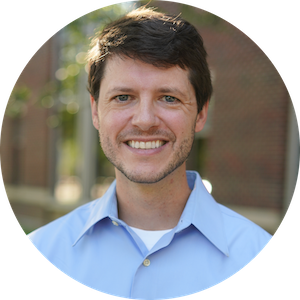
How does Empathy Inform Ethics in Engineering?
Dr. Justin Hess • April 11, 2024 at 9 a.m. Eastern
Empathy is increasingly being recognizes as an important facet of engineering ethics, including in the context of ethics, due to its potential to help engineers meet calls to design for society in a global world. Despite a recent concerted focus on empathy in engineering and engineering ethics, empathy remains a complex phenomenon with competing operationalizations and understandings thus making its connections to engineering ethics blurry. In this talk Dr. Hess will offer a dimensional view of empathy that distinguishes between cognitive and affective empathy and will describe how these dimensions inform distinct ways of thinking about ethics. The talk will close with a heuristic that can support engineering students in empathizing with diverse stakeholders, personally, locally, and globally.
Justin L Hess is an assistant professor in the School of Engineering Education at Purdue University. Dr. Hess’s research focuses on ethical and empathic formation in engineering education. He received his PhD from Purdue University’s School of Engineering Education, as well as a Master of Science and Bachelor of Science from Purdue University’s School of Civil Engineering. He is the editorial board chair for the Online Ethics Center, deputy director of research for the National Institute of Engineering Ethics, and past-division chair for the ASEE Liberal Education/Engineering and Society division.

Living Well with AI: Virtue, Education, and Artificial Intelligence
Dr. Darby Vickers • March 26, 2024 at 3 p.m. Eastern
Artificial intelligence technologies are becoming ubiquitous. We must determine how to live well alongside AI. Currently, the most prominent candidate answers follow a principlist approach. We find the dominant principlist approaches to be ill-suited to providing forward-looking moral guidance regarding living well with artificial intelligence. By contrast, we argue for an Aristotelian virtue ethics approach to artificial intelligence ethics. Aristotelian virtue ethics provides a concrete and actionable guidance that is also flexible; thus, it is uniquely well placed to deal with the forward-looking and rapidly changing landscape of life with artificial intelligence.
Darby Vickers is an assistant professor of philosophy at University of San Diego. Her research focuses on expertise and skill acquisition and transmission and sits at the intersection of ethics, epistemology, and philosophy of education. Her dissertation, “Is Virtue an Expertise?: The Epistemology of Virtue in Plato’s Meno & Republic”, looked at the intersection of these topics in Plato. In her research, she draws on contemporary philosophy and cognitive science as well as her training in Ancient Philosophy. She has co-authored articles on virtue ethics, ethics of artificial intelligence, and doctoral student education. She teaches courses in practical and theoretical ethics, ancient philosophy, and philosophy of education.

Sources and Sorcery: The Ethics of Creating, Curating, and Consuming Media
Dr. Deni Elliott • February 27, 2024 at 3 p.m. Eastern
The change from analog to digital media transformed the creation, curation, and consumption of media in ways as earthshattering as the printing press and the telegraph. Every person accessing the internet has power to create, curate, and consume mass communication, whether used intentionally or not. Our virtual footprints exceed the size and impact of those on the physical world, resulting in ethical responsibilities for every person, organization, corporation, and government who sends, receives, and shares information. This discussion will explore those responsibilities and ideally conclude with agreement on how applied understanding of these responsibilities can help us become better citizens.
Deni Elliott is Professor Emerita in the Department of Journalism and Digital Communication, USF and the Eleanor Poynter Jamison Chair of Media Ethics and Press Policy at USF. Dr. Elliott, in her form role as a Board member for the Association for Practical and Professional Ethics (APPE), is also the Project Co-Director for the National Ethics Program, an APPE and Harvard project initially funded by the Spencer Foundation. She has published multiple books and more than 200 articles and book chapters on a range of topics related to areas of applied ethics.
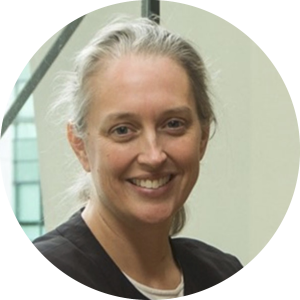
Legitimate and Illegitimate Limits to Scientific Freedom
Dr. Heather Douglas • January 23, 2024 at 3 p.m. Eastern
Watch online https://youtu.be/X1Wn_n1ra-k
Some areas of research are off‐limits, and some areas of research are limited by strict requirements of ethically acceptable methodological approaches. This talk will address under what conditions such limitations are legitimate, delineating when ethical or societal concerns over scientific research can set some research outside the bounds of scientific freedom, and when such limitations are an abuse of political power and an unwarranted politicization of science.
Heather Douglas is a philosopher of science who works on the relationships among science, values, and democratic publics. She is an Associate Professor in the Department of Philosophy at Michigan State University, an American Association for the Advancement of Science (AAAS) fellow and was Senior Visiting Fellow at the Center for Philosophy of Science at the University of Pittsburgh (2021‐2022). She is the author of Science, Policy, and the Value‐Free Ideal (2009), The Rightful Place of Science: Science, Values, and Democracy (2021), and editor of the book series Science, Values, and the Public for University of Pittsburgh Press.
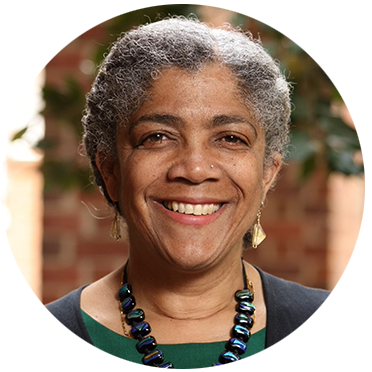
Non-human Animals and a New Ethics for Engineering
Dr. Rosalyn W. Berne • October 25, 2023 at 10 a.m. EDT
Watch online https://youtu.be/pIdiD18fXPc
Earth’s animal populations have declined by an average of 69% since 1970, partly due to unsustainable use of land, water, energy, and resulting climate change. Indeed, non-human animals have long been disregarded and devalued under the rationalist worldview at the foundation of engineering design and practice. By disconnecting our human identity from Earth’s non-human others, essentially treating them as technologies for our use, we humans have put ourselves at risk. The speaker will trace some of the ways in which animals have been relegated as fodder and as natural resources to be engineered for human purposes and suggest that a new engineering ethics is essential if we are to address the moral and material urgencies we are now facing.
Rosalyn W. Berne is the Anne Shirley Carter Olsson Professor of Applied Ethics; Chair of the Department of Engineering and Society in the UVA School of Engineering and Applied Sciences; and Director of the Online Ethics Center for Engineering and Science (OEC). Dr. Berne explores the intersecting realms of emerging technologies, science, fiction and myth, and the links between the human and non-human worlds. She has published two academic books — Nanotalk: Conversations with Scientists and Engineers about Ethics, Meaning, and Belief in the Development of Nanotechnology and Creating Life from Life: Biotechnology and Science Fiction; numerous conference papers and journal articles; Waiting in the Silence: A sci-fi novel with an ethics focus; and two award winning books in the genre of body-mind-spirit: When the Horses Whisper, and Waking to Beauty. Dr. Berne served for two years as Director of the Center for Engineering Ethics at National Academy of Engineering, and presently serves on the Ethics Committee of the ASEE.
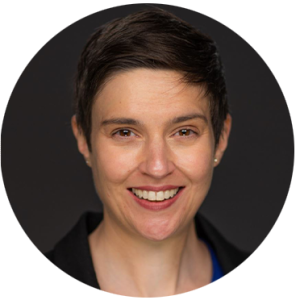
Data Ethics for the AI Age: Principles for Trustworthy Data (Re)use
Katie Shilton, Ph.D. • September 18, 2023 at 3–5 p.m. (set-up at 2:30 p.m.) EDT
WATCH ON YOUTUBE https://youtu.be/X3qqjmVucSk
Researchers, data scientists, and AI developers using big, pervasive data about people face a significant challenge: navigating norms and practices for ethical and trustworthy data use. In response, the six-campus PERVADE project has conducted research with data scientists, data subjects, and regulators, and has discovered two entwined trust problems: 1) lack of participant awareness of many research projects and 2) the relationship of social data (re)use to corporate datafication and surveillance. In response, we have developed a decision support tool for researchers, inspired by research practices in a related but perhaps surprising research discipline: ethnography. This talk will introduce PERVADE’s research findings and the resulting decision support tool and discuss ways that researchers and developers working with pervasive data can incorporate reflection on awareness and power into their research.
Katie Shilton is an associate professor in the College of Information Studies at the University of Maryland, College Park. Her research focuses on technology and data ethics. She is a co-PI of the NSF Institute for Trustworthy Artificial Intelligence in Law & Society (TRAILS), and a co-PI of the Values-Centered Artificial Intelligence (VCAI) initiative at the University of Maryland. She was also recently the PI of the PERVADE project, a multi-campus collaboration focused on big data research ethics. Other projects include improving online content moderation with human-in-the-loop machine learning techniques; analyzing values in audiology technologies and treatment models; and designing experiential data ethics education. She is the founding co-director of the University of Maryland’s undergraduate major in social data science. Katie received a B.A. from Oberlin College, a Master of Library and Information Science from UCLA, and a Ph.D. in Information Studies from UCLA.
Ethically Speaking is a campus-wide partnership that brings internationally renowned leaders to UCF to discuss cutting-edge topics in ethics. All members of UCF and the community we serve are encouraged to attend. More information on this speaker series and upcoming talks can be found at cah.ucf.edu/ethicscenter/.

REALity of ARTificial Intelligence
UCF Celebrates the Arts Panel Discussion • April 10, 2023 at 6:00 p.m. EDT
Watch on YouTube after the event
Experts in ethics, visual art, industry and computer science will help you better understand this quickly-evolving technology and how it impacts the creative process. Before and after the talks, enjoy demonstrations of visual art and written word created by AI and see how UCF students are working in this area during a poster session. Learn more at https://arts.cah.ucf.edu/event/reality-of-artificial-intelligence/
Hosted by the UCF Center for Ethics, in collaboration with the Center for Computer Vision and the School of Visual Arts and Design.
2022
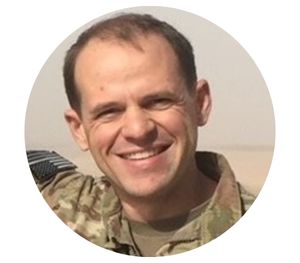
The Ethical Challenges of Drone Warfare. Is the Just War Tradition Obsolete?
Joshua Lehman, MAJ(P), SF • January 26, 2022 at 4:00 p.m. EDT
Watch on YouTube https://youtu.be/mBnQb7fWKbM
Is it right to program machines to kill? The proliferation of drones in combat has challenged traditional understanding of justice in war. For example, drones have been used to strike enemy targets outside of the context of war. More concerning, algorithms are increasingly taking the place of decision making once reserved exclusively to the morally responsible military actor. MAJ Joshua Lehman teaches philosophy and the ethics of war at West Point. Experience as an operations officer with responsibility for drone strikes informs his study of the ethics of drone warfare. In his presentation, Major Lehman will discuss Just War Theory, the corresponding framework for using drones in combat, and the ethics and implications of the increasing autonomy of drones.
Major Joshua Lehman is Instructor of English and Philosophy at the United States Military Academy at West Point, a Special Forces officer, and a 2005 graduate of West Point. His degrees include an MA in Defense and Strategic Studies from the US Naval War College, the MA in Theology from Holy Apostles College & Seminary, and the MA in Philosophy from Boston College. His research interests include metaphysics, just-war tradition, and strategic studies. Major Lehman’s service with the 5th Special Forces Group (Airborne) at Fort Campbell, KY includes missions in Iraq, Syria, and others throughout the Middle East. His duty positions include command of a Special Forces Operational Detachment-Alpha, command of an advanced skills company, and service as the executive officer of 3rd Battalion, 5th SFG (A)
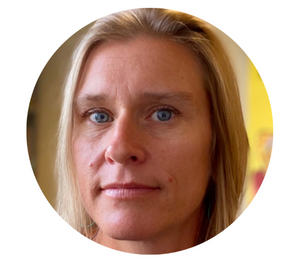
The Role of Emotions in Facing Climate Change
Dr. Sarah Jaquette Ray • February 24, 2022 at 3:30 p.m. EDT
Watch on YouTube https://youtu.be/7QSCxj0KYMI
Dr. Sarah Jaquette Ray discusses her book, A Field Guide to Climate Anxiety: How to Keep Your Cool on a Warming Planet. The book threads together different aspects of the environmental humanities, including social movement theory, environmental justice, climate psychology, mindfulness and affect theory, to outline strategies for coping with anxiety, grief, despair and other responses to the climate crisis and other crises, such as coronavirus and ongoing struggles for racial justice. Ray will talk about how a new generation of young activists is changing the climate movement and why it’s so important for them and for the planet that they cultivate intellectual and existential resilience. What will it take to imagine, desire, and thrive in a climate-changed future? How can taking an interdisciplinary approach to environmental problems help us rise to this historical moment?
Dr. Sarah Jaquette Ray is chair of the Environmental Studies Department at Humboldt State University. Her first book, The Ecological Other: Environmental Exclusion in American Culture (Arizona, 2013) explores the ways that environmental discourse often reinforces existing social hierarchies, drawing on a legacy of nativist, racial, and ableist exclusion in environmental history. Her second book, A Field Guide to Climate Anxiety: How to Keep Your Cool on a Warming Planet (California, 2020) is an existential toolkit for the climate generation. Dr. Ray is working on an Existential Toolkit for Climate Justice Educators and a workshop offering for educators, the Climate Wisdom Lab.
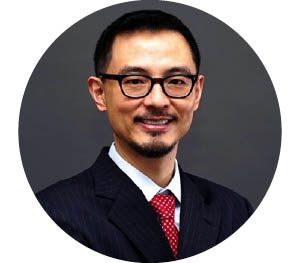
Ethics of AI and Health Care: Towards a Substantive Human Rights Framework
S. Matthew Liao • March 25, 2022 at 4:00 p.m. EDT
Watch on YouTube https://youtu.be/0pdyBLl3xUg
There is enormous interest in using artificial intelligence (AI) in health care contexts. But before AI can be used in such settings, we need to make sure that AI researchers and organizations follow appropriate ethical frameworks and guidelines when developing these technologies. In recent years, a great number of ethical frameworks for AI have been proposed. However, these frameworks have tended to be abstract and not explain what grounds and justifies their recommendations and how one should use these recommendations in practice. In his presentation, Dr. Liao will propose an AI ethics framework that is grounded in substantive, human rights theory and one that can help us address these questions.
S. Matthew Liao is Arthur Zitrin Chair of Bioethics, Director of the Center for Bioethics, Professor of Global Public Health, and Affiliated Professor in the Department of Philosophy at New York University. He is the author or editor of The Right to Be Loved (Oxford University Press); Ethics of Artificial Intelligence (Oxford University Press); Moral Brains: The Neuroscience of Morality (Oxford University Press); The Philosophical Foundations of Human Rights (Oxford University Press); Current Controversies in Bioethics (Routledge), and over 60 articles in philosophy and bioethics. He has given TED and TEDx talks in New York and CERN, Switzerland, and he has been featured in the New York Times, The Atlantic, The Guardian, the BBC, Harper’s Magazine, Sydney Morning Herald, Scientific American and other media outlets. He is the Editor-in-Chief for the Journal of Moral Philosophy, a peer-reviewed international journal of moral, political and legal philosophy.
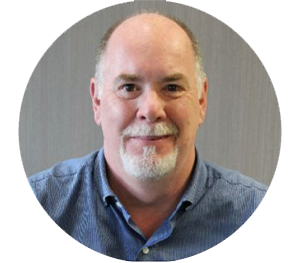
From the Research Lab to the World: Scaling Up a Miracle
Justin K. Moran, PhD • September 20, 2022 at 9:00 a.m. EDT
Watch on YouTube https://youtu.be/4N_gEOl5p_I?t=644
What challenges are involved in taking emerging technologies and promising cures from the lab to the public? Now more than ever we can appreciate that there is an interdependence between publicly funded research and the industrial development and distribution of medications, vaccines, and other healthcare products and services. But how is that done? What technical and ethical challenges are involved? What lessons have been learned about the promise, power, and pitfalls of the pharmaceutical industry? And how can emerging young scientists and engineers be part of the cure and not the chaos? Dr. Moran will address these questions and more as he explains some of the science behind scale-up of the Pfizer-BioNTech COVID-19 vaccine and the connected issues of public policy, and ethics.
Dr. Justin Moran is Vice President, Head of Bioprocess Development, at Pfizer Vaccines (https://www.linkedin.com/in/justin-moran-04849a10/). He led the team that scaled up the Pfizer-BioNTech COVID-19 vaccine, making billions of doses available for global distribution. Dr. Moran began his career as an inorganic bench chemist and rose to become a team-lead at one of the world’s largest pharmaceutical companies.
2021
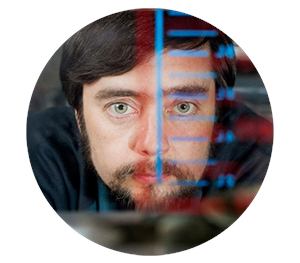
Synthetic Living Organisms: Heralds of a Revolution in Technology and Ethics
Dr. Michael Levin • October 12, 2021 at 2:30 p.m. EDT
Watch on YouTube https://youtu.be/EUwMNplNidM
Progress at the intersection of biology, computer science, and cognitive science is revealing the remarkable plasticity of living systems and their interoperability with technology. Synthetic bioengineering enables regenerative medicine, as well as the creation of entirely new living organisms, like “Xenobots.” Advances in the field blur the lines between machines and organisms. Emerging questions in bioethics extend well beyond safety-driven limitations on research and ask how we will handle a forthcoming and inevitable plethora of hybrid creatures, which will be unlike us in many ways and have no comfortable place on the phylogenetic tree that guides our policies. Dr. Levin will illustrate that these alien creatures raise profound questions about the fundamental nature of our own bodies and minds, with numerous ethical ramifications.
Dr. Michael Levin is Distinguished Professor and Vannevar Bush Professor of Biology at Tufts University. He serves as Director of the Allen Discovery Center and the Tufts Center for Regenerative and Developmental Biology. His interdisciplinary teams are learning to control tissue growth and regeneration — to heal, to repair, and potentially to create new forms of life itself.
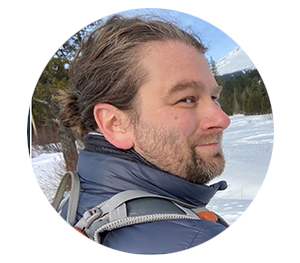
Biotechnology and Global Health: Lessons from the COVID-19 Pandemic
Dr. Bryan Cwik • November 4, 2021 at 2:30 p.m. EDT
Watch on YouTube https://youtu.be/hyx3X85KW4Q
The ongoing COVID-19 pandemic has exposed myriad vulnerabilities and inequities in global health. One major lesson that the world must learn is how biotechnology and access to biotechnical infrastructure have impacted the course of the pandemic and the distribution of its burdens. Discussions of global-health ethics often (and rightly) focus on lack of basic health care infrastructure. Although it is not a substitute for shortfalls in clinical resources, biotechnology plays an important role in global health. Dr. Cwik will discuss how addressing major ethical challenges in global health requires diffusion of biomedical technology and technical capacity to address issues, such as inequitable access to vaccines.
Dr. Bryan Cwik is Assistant Professor of Philosophy and University Studies at Portland State University in Portland, Oregon. He studies biomedical ethics and political philosophy. He has published on gene editing, climate change, and intellectual property, and is currently at work on a book on the ethics of biotechnology.
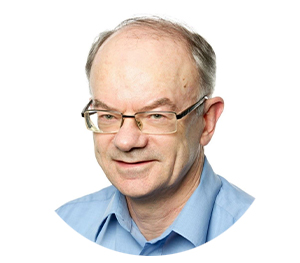
Quantification in Ethics
Dr. James Franklin • November 30, 2021 at 4:30 p.m. EDT
Watch on YouTube https://youtu.be/UkZLj1h-BdE
Ethics is usually thought of as involving no quantification – it is about discussing principles and resolving dilemmas with arguments just in words. But many ethical decisions require a degree of quantification, precise or imprecise. Just because humans have an equal ethical worth (itself not quantifiable), they sometimes need to be counted, as in taking a course of military or healthcare action that minimizes number of deaths. More subtle cases include compensation calculations, monetary debts, and healthcare allocation using quality-adjusted life-years (QALYs). The talk gives an overview of where quantification is needed in ethics and how it meshes with non-quantitative considerations.
Dr. James Franklin was Professor in the School of Mathematics and Statistics at the University of New South Wales, Sydney, Australia. His research interests include the philosophy of mathematics, the history of ideas (especially probability) and extreme risk theory. His books include Corrupting the Youth: A History of Philosophy in Australia and An Aristotelian Realist Philosophy of Mathematics. He was awarded the 2005 Eureka Prize for Research in Ethics. He taught the world’s first course on Professional Issues and Ethics in Mathematics.

